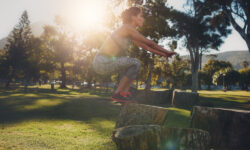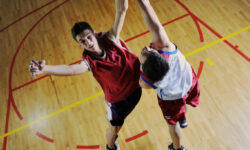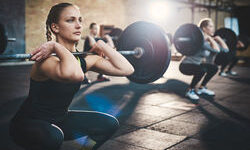What to eat before and after a workout?
It’s a very common question and, like so much in the world of health and fitness, the question of sports nutrition is one that has a myriad of answers. Much depends on the activity and the state of fitness of the person asking the question.
However, there are some facts and truths about sports nutrition that remain common no matter what your level or type of activity.
Rule number one:
Don’t ditch the carbs. Despite many diets that recommend totally the opposite, you must remember that carbohydrates (oats, rice, pasta, potatoes etc) are the fuel for your engine. The harder you work, the more carbs you need to keep you going.
When to eat?
Your muscles have specific jobs to do. And they are not good at multi-tasking. If you eat too close to a workout, your stomach muscles will be working hard to digest the food. Adding in the challenge of exercising will put the muscles under stress resulting in cramps and symptoms of gluten intolerance. As a rule of thumb it is best to fuel about 1-3 hours before a workout. With experience, you will learn when your body can tolerate food before exercise.
What to eat pre-exercise?
When it comes to pre exercise sports nutrition, it is really personal taste but here are a few ideas:
Greek yoghurt and berries
Oatmeal with fruit and milk
Apple and peanut or almond butter
Banana sandwich
A handful of nuts and raisins
Post workout sports nutrition
As you work out so the energy stored in your muscles (glycogen) is diminished. As soon as possible after a workout (15 minutes or so) get some carbs and protein into your body. The protein is essential for rebuilding and repairing muscle while the carbs will help restore your energy levels.
Rule number two
Never try anything new if you are in event mode. If you have signed up for an event, such as a marathon or a charity bike ride, make sure you have your sports nutrition plan well established long before the event. Learn to listen to your body and respond accordingly. If you are lethargic during a training session, you might need to eat more or at a different time. If you cannot shake the aching muscles, you might need to introduce different elements (particularly protein) into your diet.
What should you drink?
It is really important to make rehydration a central part of your sports nutrition. The market is awash with gels and sports drinks that promise to energise you but actually for most people, water will do. Yes, it is important to maintain glucose levels, but good nutrition pre- and post-exercise is enough for people doing regular workouts. If you are preparing for an ultra marathon or something of similar sustained effort, then talk to a sports nutrition expert. Drink water before, during and after your exercise session.
Rule number three
Working out isn’t a licence to eat anything and everything. It’s easy to overestimate the amount of calories you burn while working out and, if you allow yourself to become hungry after exercising there is a temptation to tuck into sugar rich snacks. If you are working out for an hour or less then a healthy balanced diet will suit you just fine. However, you should adjust your calorie intake if you’re engaging in serious training, such as for a triathlon, where you might be working out more than once a day.
For advice with sports nutrition, speak to one of our knowledgable staff in the Outlooks Gym.








